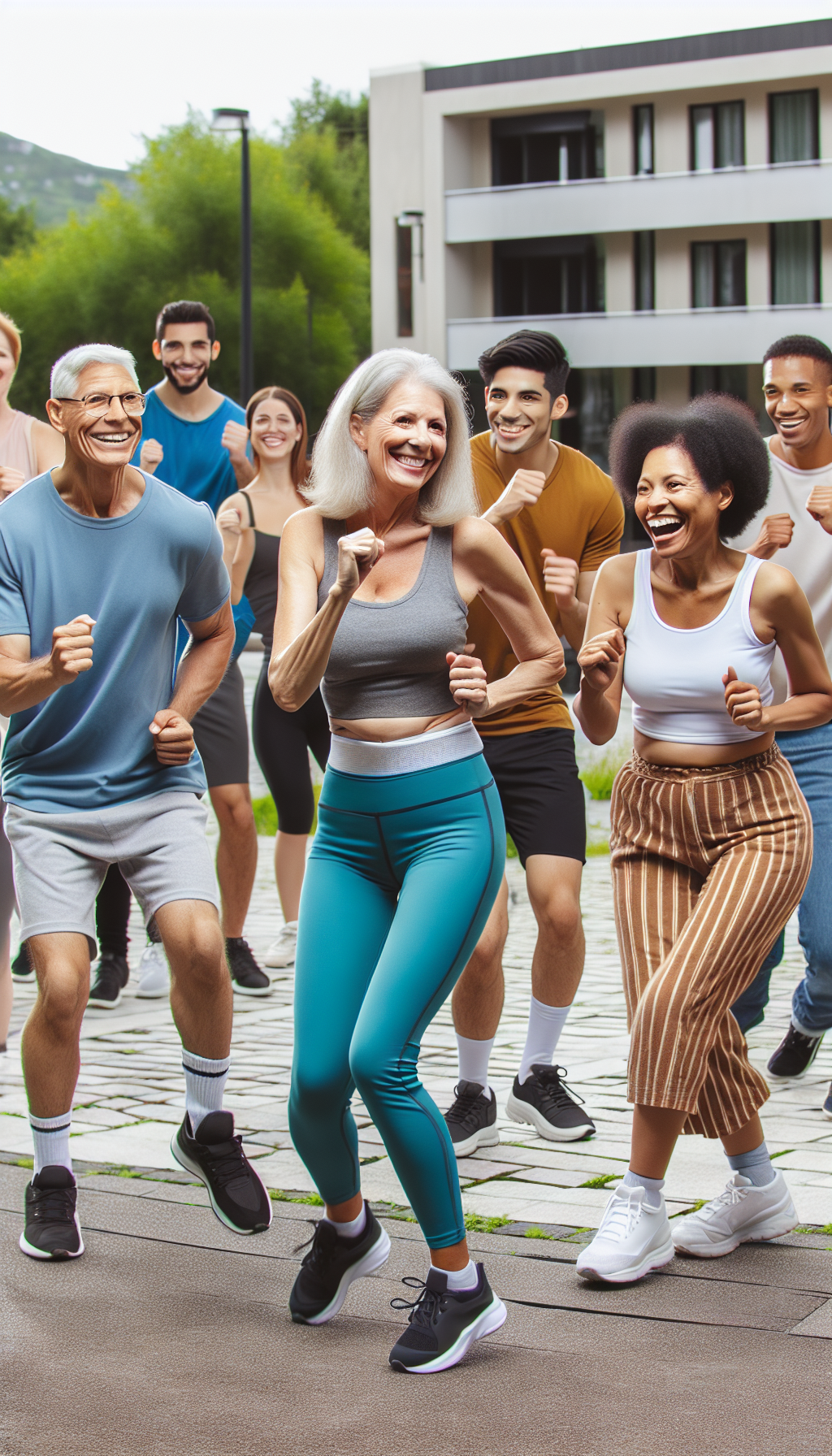In a world where the perception of one’s physical appearance can significantly influence self-esteem and mental well-being, fostering a positive body image is of paramount importance. Fitness, with its multifaceted benefits, can be a powerful tool in this endeavor. Not only does regular exercise contribute to physical health, but it also plays a critical role in shaping a healthy body image and self-concept. This article will explore the profound ways in which fitness can nurture a positive body image, while also delving into related health topics and providing valuable resources for further reading.
The Foundations of Body Image
Body image is the mental representation one creates of themselves, and it can be shaped by a variety of factors including personal experiences, societal standards, and the media. A positive body image is characterized by a true and appreciative perception of one’s body, leading to feelings of comfort and confidence in one’s own skin. Conversely, a negative body image can result in dissatisfaction, shame, and a multitude of psychological issues, including eating disorders and depression.
The Role of Fitness in Enhancing Body Image
Engaging in a fitness regimen is one of the most effective ways to improve body image. Exercise not only changes the physique but also enhances mood through the release of endorphins, which can provide a more positive outlook on life and self-perception. Moreover, setting and achieving fitness goals instills a sense of accomplishment and self-efficacy, which can boost confidence and create a more favorable body image.
Physical Health and Body Image
It’s well-documented that regular physical activity has immense benefits for physical health, including improved cardiovascular health, stronger bones, and better muscle tone. These improvements can directly influence one’s body image. As physical health markers improve, individuals often feel a sense of pride and satisfaction in their bodies’ abilities and appearance. This can reinforce a positive self-image as the focus shifts from aesthetics to capabilities.
Psychological Benefits of Exercise
The psychological benefits of exercise are just as significant as the physical ones. Regular physical activity can reduce symptoms of anxiety and depression, conditions that are often linked with negative body image. With improved mental health often comes a more balanced perception of oneself and one’s body.
Mindfulness and Body Awareness
Exercise can also cultivate mindfulness and body awareness. Practices such as yoga and pilates encourage individuals to focus on how their bodies feel during movement, fostering a deeper connection and appreciation for their physical selves. This mindful approach to exercise can help in recognizing and celebrating the body’s strengths rather than focusing on perceived flaws.
Social Connections and Support
The social aspect of fitness, such as group classes or sports teams, can also positively impact body image. Being part of a community with similar health goals provides emotional support and can help in normalizing various body types, making individuals feel accepted and less inclined to compare themselves negatively to others.
Integrating Fitness into Daily Life
Adopting fitness as a lifestyle choice rather than a temporary fix is essential for long-term body image benefits. Here are some ways to integrate fitness into your daily routine:
- Choose activities you enjoy to ensure consistency.
- Set realistic and achievable goals to maintain motivation.
- Celebrate all successes, no matter how small, to build confidence.
- Listen to your body and adjust your activities to match your energy levels and mood.
For more insights on tailoring fitness to your lifestyle, consider reading Tailoring Your Fitness Goals to Your Lifestyle.
Overcoming Challenges
It’s important to acknowledge the potential challenges one might face on their fitness journey. Injury, for instance, can be a setback that affects both physical health and body image. Understanding how to prevent and manage injuries is crucial for maintaining a positive trajectory. For guidance, you can explore strategies for Overcoming Common Fitness Injuries.
Another challenge is the inundation of fitness myths that can lead to confusion and frustration. To navigate through misinformation, check out Navigating Fitness Advice: Separating Myths from Facts.
Supporting a Positive Body Image Beyond Fitness
Fitness is a significant, but not the sole, contributor to a positive body image. Other lifestyle factors play a role, including:
- Nutrition: A balanced diet supports physical health and by extension, body image. Learn more about The Essentials of Pre and Post Workout Nutrition.
- Sleep: Adequate rest is essential for recovery and mental health, both of which influence body image. For more on this, see The Interplay Between Sleep and Fitness.
- Hydration: Proper hydration is key for physical performance and overall well-being.
For a deeper understanding of these components, consider these external resources:
- Mindful Eating Community – A niche resource for developing a mindful approach to eating, which supports both nutrition and body image.
- Sleep Foundation – Provides extensive research and advice on the connection between sleep, health, and well-being.
- Hydration for Health – Offers detailed insights on the importance of hydration for overall health.
Conclusion
Fostering a positive body image through fitness is a multifaceted journey that encompasses physical health, psychological well-being, and lifestyle choices. By embracing fitness as a regular part of life, individuals can enhance their body image, leading to improved self-confidence and a more fulfilling life experience.
Remember, the journey to a positive body image is personal and unique. It’s about finding what works for you, celebrating your body’s capabilities, and treating yourself with kindness and respect. Fitness is a powerful ally in this journey, offering a path to not only better physical health but also a more positive and resilient self-image.



